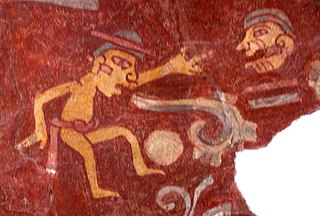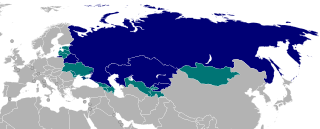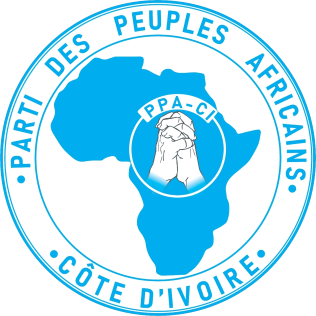Related Research Articles

French is a Romance language of the Indo-European family. Like all other Romance languages, it descended from the Vulgar Latin of the Roman Empire. French evolved from Gallo-Romance, the Latin spoken in Gaul, and more specifically in Northern Gaul. Its closest relatives are the other langues d'oïl—languages historically spoken in northern France and in southern Belgium, which French (Francien) largely supplanted. French was also influenced by native Celtic languages of Northern Roman Gaul like Gallia Belgica and by the (Germanic) Frankish language of the post-Roman Frankish invaders. Today, owing to the French colonial empire, there are numerous French-based creole languages, most notably Haitian Creole. A French-speaking person or nation may be referred to as Francophone in both English and French.

Persian, also known by its endonym Farsi, is a Western Iranian language belonging to the Iranian branch of the Indo-Iranian subdivision of the Indo-European languages. Persian is a pluricentric language predominantly spoken and used officially within Iran, Afghanistan, and Tajikistan in three mutually intelligible standard varieties, respectively Iranian Persian, Dari Persian, and Tajiki Persian. It is also spoken natively in the Tajik variety by a significant population within Uzbekistan, as well as within other regions with a Persianate history in the cultural sphere of Greater Iran. It is written officially within Iran and Afghanistan in the Persian alphabet, a derivative of the Arabic script, and within Tajikistan in the Tajik alphabet, a derivative of the Cyrillic script.

German is a West Germanic language in the Indo-European language family, mainly spoken in Western and Central Europe. It is the most spoken native language within the European Union. It is the most widely spoken and official language in Germany, Austria, Switzerland, Liechtenstein, and the Italian autonomous province of South Tyrol. It is also an official language of Luxembourg, Belgium and the Italian autonomous region of Friuli-Venezia Giulia, as well as a recognized national language in Namibia. There are also notable German-speaking communities in France (Alsace), the Czech Republic, Poland, Slovakia, Denmark, Romania and Hungary (Sopron). Overseas, sizeable communities of German-speakers are found in Brazil, South Africa (Kroondal), Namibia, among others, some communities have decidedly Austrian German or Swiss German characters.

Modern Standard Hindi, commonly referred to as Hindi, is the standardised variety of the Hindustani language written in Devanagari script. It is the official language of India alongside English and the lingua franca of North India. Hindi is considered a Sanskritised register of the Hindustani language, which itself is based primarily on the Khariboli dialect of Delhi and neighbouring areas. It is an official language in nine states and three union territories and an additional official language in three other states. Hindi is also one of the 22 scheduled languages of the Republic of India.

The Indo-European languages are a language family native to the overwhelming majority of Europe, the Iranian plateau, and the northern Indian subcontinent. Some European languages of this family—English, French, Portuguese, Russian, Dutch, and Spanish—have expanded through colonialism in the modern period and are now spoken across several continents. The Indo-European family is divided into several branches or sub-families, of which there are eight groups with languages still alive today: Albanian, Armenian, Balto-Slavic, Celtic, Germanic, Hellenic, Indo-Iranian, and Italic; another nine subdivisions are now extinct.

Japanese is the principal language of the Japonic language family spoken by the Japanese people. It has around 123 million speakers, primarily in Japan, the only country where it is the national language, and within the Japanese diaspora worldwide.

Java is a high-level, class-based, object-oriented programming language that is designed to have as few implementation dependencies as possible. It is a general-purpose programming language intended to let programmers write once, run anywhere (WORA), meaning that compiled Java code can run on all platforms that support Java without the need to recompile. Java applications are typically compiled to bytecode that can run on any Java virtual machine (JVM) regardless of the underlying computer architecture. The syntax of Java is similar to C and C++, but has fewer low-level facilities than either of them. The Java runtime provides dynamic capabilities that are typically not available in traditional compiled languages.

Language is a structured system of communication that consists of grammar and vocabulary. It is the primary means by which humans convey meaning, both in spoken and signed forms, and may also be conveyed through writing. Human language is characterized by its cultural and historical diversity, with significant variations observed between cultures and across time. Human languages possess the properties of productivity and displacement, which enable the creation of an infinite number of sentences, and the ability to refer to objects, events, and ideas that are not immediately present in the discourse. The use of human language relies on social convention and is acquired through learning.

Python is a high-level, general-purpose programming language. Its design philosophy emphasizes code readability with the use of significant indentation.

Russian is an East Slavic language belonging to the Balto-Slavic branch of the Indo-European language family. It is one of the four extant East Slavic languages, and is the native language of the Russians. It was the de facto and de jure official language of the former Soviet Union. Russian has remained an official language of the Russian Federation, Belarus, Kazakhstan, Kyrgyzstan, and Tajikistan, and is still commonly used as a lingua franca in Ukraine, Moldova, the Caucasus, Central Asia, and to a lesser extent in the Baltic states and Israel.

Spanish or Castilian (castellano) is a Romance language of the Indo-European language family that evolved from the Vulgar Latin spoken on the Iberian Peninsula of Europe. Today, it is a global language with about 500 million native speakers, mainly in the Americas and Spain, and about 600 million when including second language speakers. Spanish is the official language of 20 countries, as well as one of the six official languages of the United Nations. Spanish is the world's second-most spoken native language after Mandarin Chinese; the world's fourth-most spoken language overall after English, Mandarin Chinese, and Hindustani (Hindi-Urdu); and the world's most widely spoken Romance language. The country with the largest population of native speakers is Mexico.

Tamil is a Dravidian language natively spoken by the Tamil people of South Asia. It is one of the two longest-surviving classical languages in India, along with Sanskrit, attested since c. 300 BCE. The language belongs to the southern branch of the Dravidian language family and shares close ties with Malayalam and Kannada. Despite external influences, Tamil has retained a sense of linguistic purism, especially in formal and literary contexts.

Ebonyi State is a state in the South-East geopolitical zone of Nigeria, bordered to the north and northeast by Benue State, Enugu State to the west, Cross River State to the east and southeast, and Abia State to the southwest. Named for the Abonyi (Aboine) River—a large part of which is in the state's south—Ebonyi State was formed from parts of Abia and Enugu state in 1996 and has its capital in Abakaliki.

Google Translate is a multilingual neural machine translation service developed by Google to translate text, documents and websites from one language into another. It offers a website interface, a mobile app for Android and iOS, as well as an API that helps developers build browser extensions and software applications. As of November 2024, Google Translate supports 249 languages and language varieties at various levels. It served over 200 million people daily in May 2013, and over 500 million total users as of April 2016, with more than 100 billion words translated daily.

English is a West Germanic language in the Indo-European language family, whose speakers, called Anglophones, originated in early medieval England on the island of Great Britain. The namesake of the language is the Angles, one of the ancient Germanic peoples that migrated to Britain. It is the most spoken language in the world, primarily due to the global influences of the former British Empire and the United States. English is the third-most spoken native language, after Standard Chinese and Spanish; it is also the most widely learned second language in the world, with more second-language speakers than native speakers.
The Igbo calendar is the traditional calendar system of the Igbo people from present-day Nigeria. The calendar has 13 months in a year (Afọ), 7 weeks in a month (Ọnwa), and 4 days of Igbo market days in a week (Izu) plus an extra day at the end of the year, in the last month. The name of these months was reported by Onwuejeogwu (1981).
Izi is an Igboid language spoken in Ebonyi state in Nigeria. It forms a dialect cluster with the closely related languages Ikwo, Ezza, and Mgbo.
The Mgbo are an Igboid ethnic group in Ebonyi state of southeastern Nigeria.
Ezaa is an Igboid language spoken in Ebonyi state in Nigeria. It forms a dialect cluster with closely related Izii, Ikwo, and Mgbo, though they are only marginally mutually intelligible.

The African People's Party – Côte d'Ivoire is an Ivorian political party founded in 2021 in the wake of the return to Côte d'Ivoire of former President Laurent Gbagbo, who preferred creating this new formation rather than trying to retake the position of head of the party which he had created in 1982 with his wife Simone Gbagbo, the Ivorian Popular Front (FPI). The 18 members of the legislature elected in March 2021 to the pro-Gbagbo Together for Democracy and Sovereignty party left and joined the PPA-CI at its founding in October 2021.
References
- ↑ Mgbo at Ethnologue (18th ed., 2015) (subscription required)